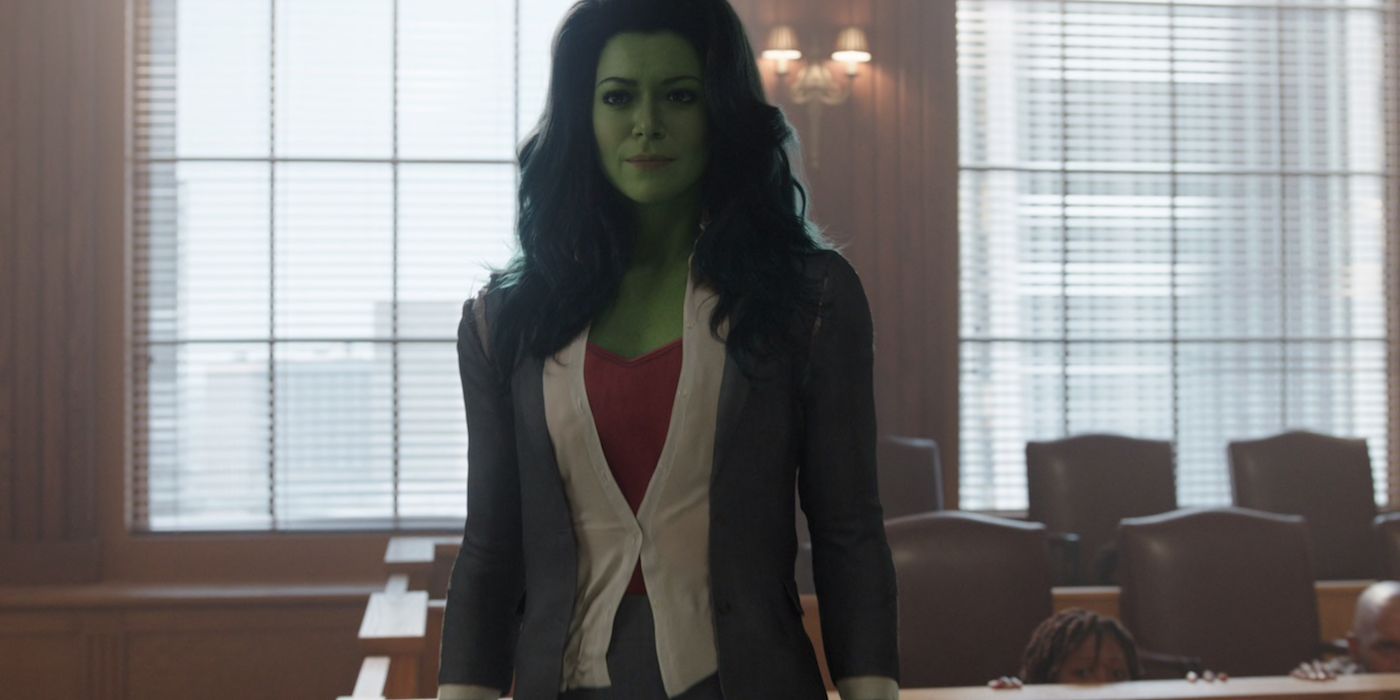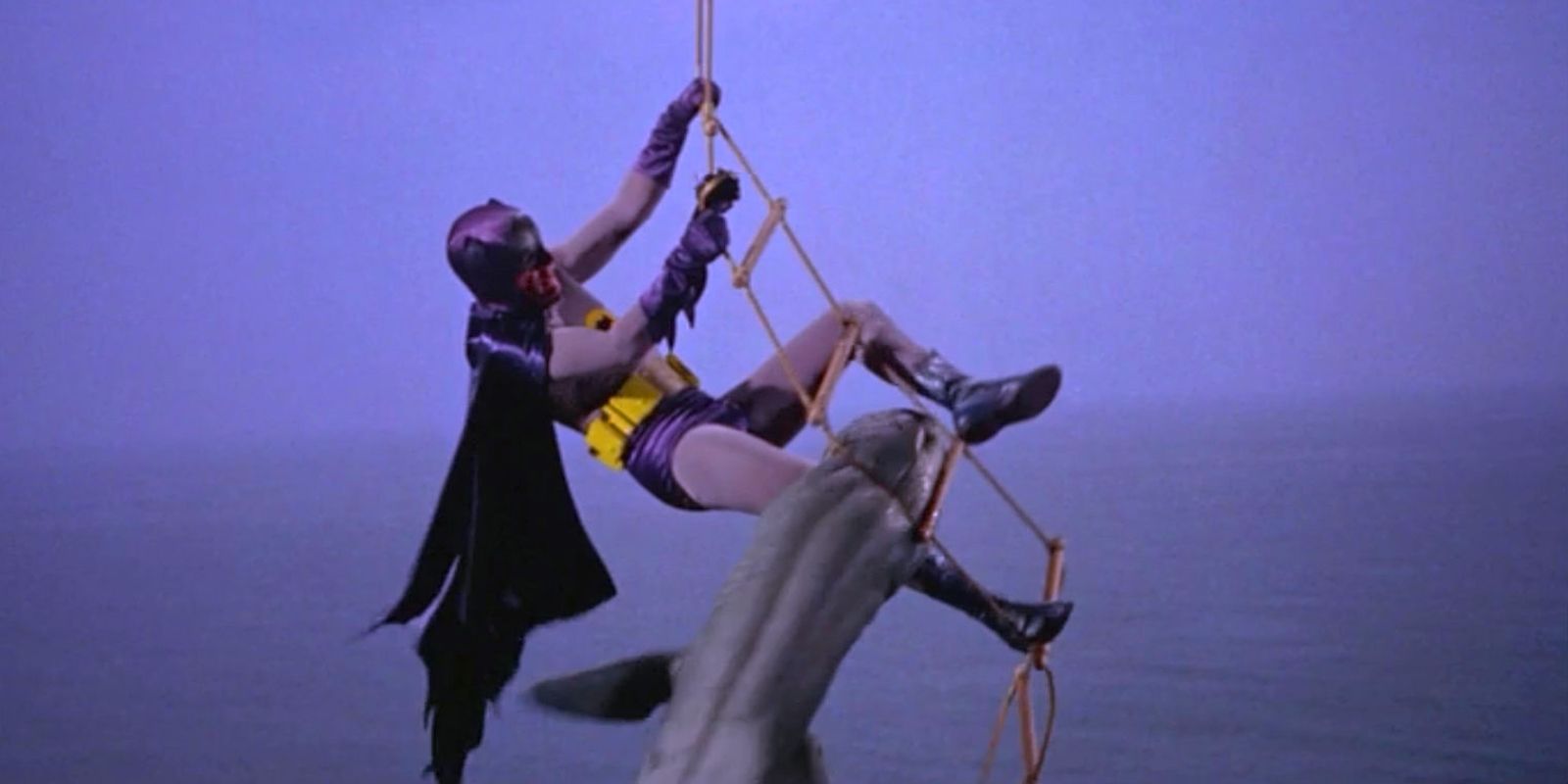Navigating the persnickety tastes and reactions in fandom is one of the most difficult things that creators adapting books or comics have to worry about. Those who've done it successfully, like in the Marvel Cinematic Universe, are given credit for staying "comic book accurate" whenever possible. That's nonsense. There is no single "accurate" version of any comic book character. Fans should stop worrying so much if the characters and plots are exactly like the source material. Changing things up only offers excitement and longevity.
She-Hulk: Attorney at Law showrunner Jessica Gao promised fans that their Daredevil will be comic-book accurate. A preemptive buffer against fans who think a Daredevil telling jokes would somehow violate a foundational precept of the character. Similarly, actor Quintessa Swindell also promised DC fans that Cyclone's comic book backstory remains intact in Black Adam. Any creators working on an adaptation should have respect and perhaps even reverence for the source material. Their primary job, however, is to tell the best story they can in the medium required. In a movie, some comic book elements may be combined, altered or cut altogether. On a TV series, elements may be added to give the characters more conflict or higher stakes. Both things are okay if that's what the particular story needs.
From the fandom point-of-view, comic book accuracy is the standard for adaptations of comic book stories. Until it isn't. In X-Men (2000), Wolverine makes a snide remark about the black leather jumpsuits the team wears before their big third-act mission. James Marsden's Cyclops replies, "What would you prefer, yellow spandex?" in a clear reference to Wolverine's comics' costume. Hugh Jackman practically winks at the camera in response. This was a clear message to fans that the fancy pajamas wouldn't "work" in a modern turn-of-the-century blockbuster. At the time, this decision was praised by fans. Since this was the first major modern comics adaptation for Marvel, they just wanted the filmmakers to get it right. Accuracy was a secondary concern, saved best for winking nods and fun Easter eggs.
Take Shang-Chi, for example. In the comics, Shang-Chi used to be the son of the racist caricature "Fu Manchu," who Marvel Comics had the rights at the time. Rather than trying to polish up that turd, the storytellers invented a new origin for Simu Liu's character, one tied into the very beginnings of the MCU. Comic book accuracy is a good thing to aim for, but the ultimate goal should always be to tell a quality story that resonates in the right ways with modern audiences. The notion that there is some level of "accuracy" that ensures fans will support a project is a false one. It's all simply subjective.
Sometimes visual comic book accuracy is great, such as a shot from the Thor: Love & Thunder trailer ripped from the comics. Other times, it's not, at least according to fans upset Luis Guzman was cast as Gomez Addams, looking like he stepped right out of the strip and onto the set. Rather than a devotion to the source material, the "Inaccurate!" charge is all too often just an excuse to openly dislike some show sight unseen. Where a show like The Boys is concerned, the show abandoned the source material from the pilot episode, and people love it. The idea that something is problematic because it's not accurate to the comic books isn't even really a sensible argument, especially for characters who've gone through multiple iterations in the comics.
Batman is a character with over eight decades of stories behind him. There is no single definitive version of the character in the books because hundreds, possibly thousands of individual artists have told his stories. Ben Affleck's Batman isn't comics accurate unless the comics are Frank Miller's Dark Knight Returns series. Adam West's Batman isn't comics accurate unless the comics are those from the 1960s by writer Robert Kanigher and penciler Sheldon Moldoff, (the creator of Poison Ivy!). Publishers created the multiverse concept decades ago so that myriad versions of characters could coexist. Any every version is valid, including those altered specifically for live-action adaptations. None of this "ruins" a character, but rather reinvigorates them (or doesn't, which just primes a character for a new reboot).
The great power of these comic book stories is that they persist through generations, even passed down from parent to child. If these characters stayed exactly the same all the time, they'd have never made it past a decade. Even franchise characters not from comic books go through this, like James Bond or, to a lesser degree, Jack Reacher. So, if Daredevil cracks some jokes or a character's complex sci-fi origin is changed, that's not nearly enough of a reason to miss out on fun, fantastic storytelling.


-1.jpg)
